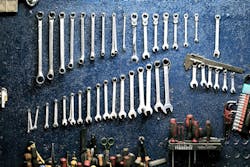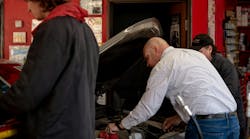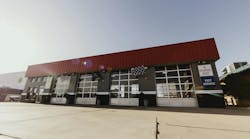Over the last decade, hundreds of articles have been written about the virtues of automotive chemical products. But the question persists, “Do these performance and maintenance chemicals and services really work? Or are they questionable brews, concocted by marketing types who are primarily interested in relieving you of your money?”
Well, think of it this way: for years automobile manufacturers have advised having our oil changed every 3,000 miles as an important preventive measure. Even though some have suggested that this time interval may have lengthened due to drive-train design, the engineers continue to recommend this service on a regular basis. These same manufacturers have also begun to recommend other preventive maintenance services such as transmission and cooling system cleaning.
As technology of the automobile increases exponentially, manufacturers have begun to recommend other regular maintenance services such as brake system and, yes, even power steering flushes. Although at present, there is no manufacturer recommendation for a full, professional cleaning of the entire fuel system, in-tank fuel system cleaners have been on the market for years, and by all indications, this service will likely be recommended in the future. Yet, even with scientifically documented recommendations, in 2014 alone, there was an estimated $60 billion worth of unperformed maintenance services. That’s $60 billion just left on the table for those who want to earn it.
Consumers ask, “Are these chemicals and service recommendations just another way to fill the coffers of the dealerships and professional installers without a significant benefit to the end user?” Absolutely not. But how are we going to convince them of that?
Like an oil change, there are several other important preventive maintenance services. Now, an oil change is such an easy sell because the consumer is almost always pre-sold. On their own, they bring their car into your shop to get the oil changed because that’s what you do! Consumers have been trained to know their vehicle needs fresh oil and a new filter on a regular basis to maintain proper operation but that same principle holds true for the other systems of the automobile, as well.
So why is it so hard to sell additional preventive maintenance services? It’s all about education. It’s about conditioning your customer to understand the necessity of maintaining all of the systems of the vehicle. And the best place for this education and conditioning is in the shop. A confident and proper explanation, along with the use of the manufacturer recommendations will, over time, convince your customer that you are not talking snake oil – you’re talking legitimate science.
An example of this science is top engine cleaning. This service removes carbon deposits from intake valves, upper cylinders, compression rings, exhaust gas recirculation valves, oxygen sensors and catalytic converters. This cleaning process almost always produces immediate and noticeable results. This service also improves the emissions and, in many cases, enables the vehicle to pass emission tests.
There are several different types of chemical formulations available to perform this service. So how do you know if the chemistry is working? The true test is the old “rotten egg test” — the foul smell from the exhaust — the smell that says it all. That odor says the chemistry is effectively cleaning the catalytic converter.
Today’s automobiles operate very efficiently and with fewer emissions than ever before. The fuel to power these vehicles even burns cleaner than in years past. There is, however, a trade-off. The highly efficient, environmentally friendly design of today’s engines actually creates more contamination and harmful deposits in the system; thus, the need for the chemicals and services to keep the fuel system pristine.
Just as the technology has evolved with the automobile, the same holds true of automotive chemicals. Today’s chemical additives, whether engineered to increase performance, improve fuel mileage or keep systems clean, are more efficient and produce better results to the end-user than ever before. The fact is, these formulations have become a necessity to keep a vehicle in proper condition, according to the engineers.
Another example is transmission service. Most manufacturers recommend performing a transmission flush service every 30,000 miles. Transmission fluid contains additives to control viscosity, oxidation, corrosion, foaming, etc. Heat is the hardest on transmission fluid. Heat causes these additives to be used up over time, resulting in gum and varnish deposits that affect the proper operation of the transmission system. The chemistry involved in a transmission flush service provides a layered cleaning effect and safely dissolves the sludge, gum and varnish deposits from the transmission system, rather than knocking off chunks of these deposits that could clog filters. This service helps keep the transmission system at optimum operating levels.
Manufacturers recommend cleaning most all of the operating systems on a regular basis. The chemistries available to clean these systems contain lab-tested ingredients to safely dissolve deposits that can affect the longevity and performance of the vehicle. It makes sense that the systems of a vehicle will operate at peak performance when free of contaminants and harmful deposits. Contamination and searing heat are everyday occurences that demand the counteracting reality of today’s advances in automotive chemistry.
LARRY BARNES is a 25-year veteran of the automotive aftermarket, was instrumental in developing the Mighty VS7 Chemicals Program and is currently the National Sales Manager with the Phillips 66/Spectrum Corporation.





